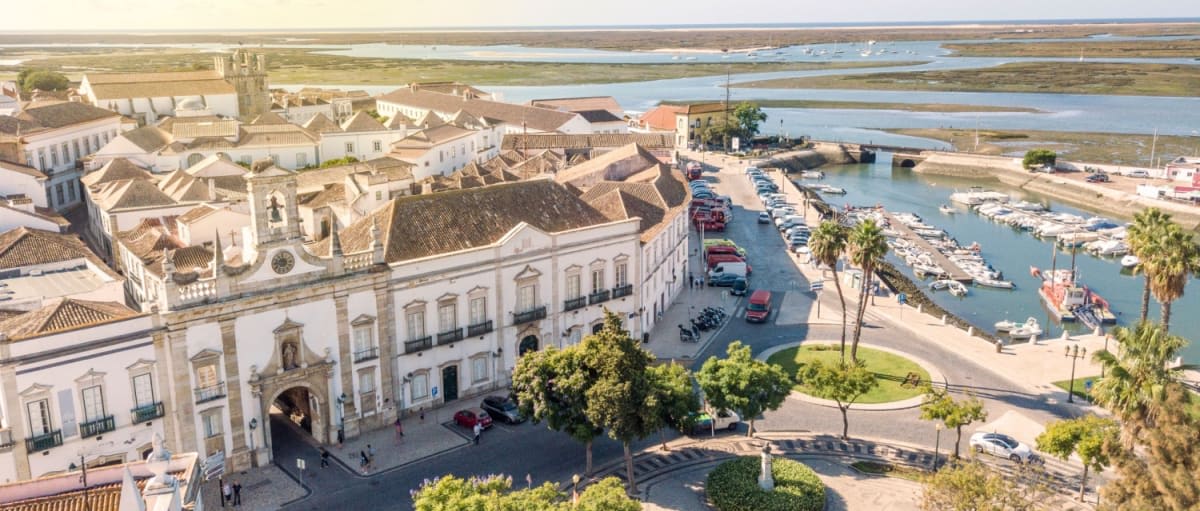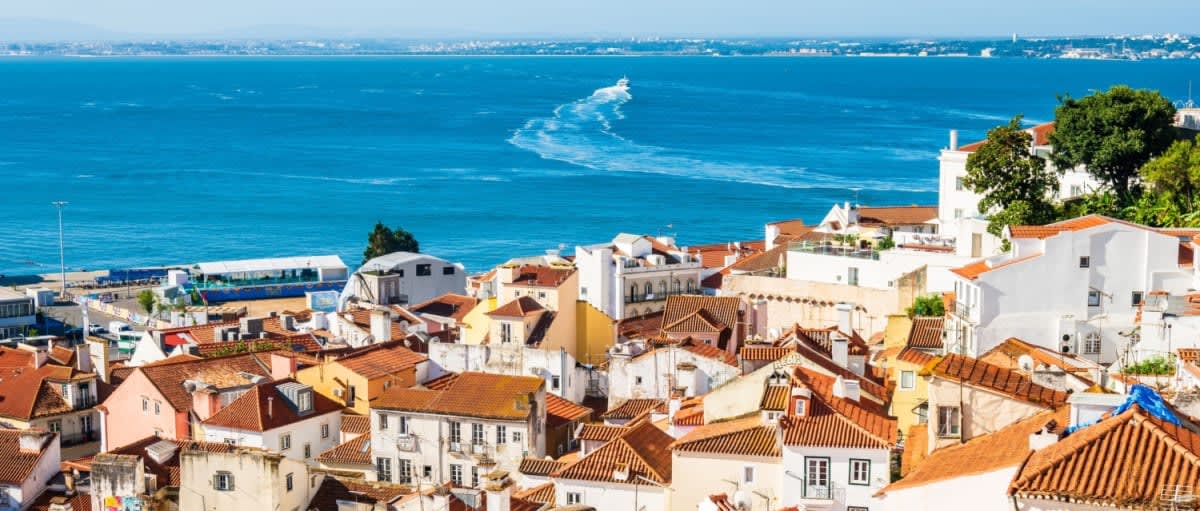Whether you’re searching for a sun-filled holiday retreat, planning a full-time relocation, or looking to invest wisely, owning a home in Portugal is an attractive and achievable goal for international buyers. Though the process may feel unfamiliar at first, Portugal’s transparent and regulated property market makes purchasing surprisingly accessible – especially with the right support. So, let’s start with that, going through the process of buying property in Portugal.
Let’s go through every step of the buying journey, from your earliest planning stages right through to signing contracts and collecting your keys. Backed by expert insights and tailored for buyers in 2025, we’ve created a practical roadmap designed to demystify the process, prevent delays and avoid costly mistakes.
Contents

Getting started: defining your goals and budget
Before you begin your property search, you should clearly define why you’re buying. Will the home be for full-time living, retirement, holiday use or short-term letting? Each purpose influences your ideal location and sets priorities for the type of property you need, from city apartments to rural villas or coastal homes.
Next, set a realistic budget. This should include:
- Your available funds in euros (or transferable currency)
- Purchase costs – typically around 8–10% extra (legal fees, notary, tax)
- Furnishing and renovation (if needed)
- Ongoing ownership costs (utilities, management, service charges)
If you’re financing with savings from another currency, speak to a specialist currency service early. Currency fluctuations can easily alter your purchasing power by thousands. Providers such as Smart Currency Exchange offer tools like forward contracts, which allow you to lock in today’s rate and avoid uncertainty closer to completion. Book a call with one of their advisors to learn more about managing currency risk.
Use this phase to research locations thoroughly. Look beyond just holiday hotspots – regions like the Silver Coast or Alentejo often provide excellent value and year-round charm. Use our property portal to explore what’s on offer in different areas at different price points.
For an introduction to different regions of Portugal and a deeper look into every step of the process, claim your free copy of our Portugal buying guide:
Download the Portugal Buying Guide
Building your advisory team
As an international buyer, your success depends on the experts you bring on board early. At a minimum, your core team should include:
- A bilingual property lawyer: They represent only your interests. Avoid relying solely on the seller’s suggested contacts – your lawyer should be impartial and independent.
- An estate agent: Choose someone registered with Associação dos Profissionais e Empresas de Mediação Imobiliária de Portugal (APEMIP). Reputable agents will offer tailored listings and local knowledge.
- A notary: In Portugal, notários are public officials who ensure all property transactions are legally binding and compliant. This role becomes more important later in the process.
- A currency specialist: They help limit financial risk when transferring funds and provide guidance on timing your exchange for maximum benefit.
If you’re planning to move permanently, it may also be useful to speak to tax advisers or residency experts. They can provide clarity on Portuguese tax structures, Non-Habitual Resident (NHR) status and relevant visa options such as the D7 or Golden Visa. You can find many of the specialists you need on our Portugal experts page.
Beginning your property search
Now that your budget and team are in place, it’s time to begin searching. The Your Overseas Home property portal is a great starting point. Your agent can also introduce you to homes not listed online or provide insight into up-and-coming neighbourhoods. Expert help can make every step of your journey go more smoothly, so take time to learn how to find an estate agent in Portugal.
Key considerations when narrowing down your shortlist include:
- Proximity to transport, shops and healthcare – essential for full-time living or later-life planning
- Rental potential and tourist licensing if you’re buying for income
- Natural hazards (wildfires, flooding) and local planning regulations
- The state of the property – do you want a project or move-in ready?
This is also the right moment to apply for your NIF (Número de Identificação Fiscal). You’ll need this for almost all formal processes in Portugal: opening a bank account, signing contracts, setting up utilities and paying taxes. Your lawyer can usually apply on your behalf in advance of your visit.
Viewing and selecting your property
Once you’ve identified suitable properties, it’s time to view them in person, where possible. Many people make the mistake of rushing this part – it’s essential to carefully inspect each property and its surroundings. Even seemingly small issues (like poor road access or nearby construction) can affect your enjoyment or ability to rent the home.
Use this time to:
- Verify the condition of the building, plumbing, electrics and roof
- Check distances to local services like shops, restaurants and schools
- Understand if there are any planning restrictions or rules on renovations
For peace of mind, consider commissioning a professional property survey. While not legally required in Portugal, surveys are especially useful for older homes or rural properties, where undisclosed issues might exist.
Planning a viewing trip? Download our free viewing trip guide for checklists and tips on how to get the most from your visit.
Making an offer and legal checks
Once you’ve found the right property, ask your agent to confirm whether the asking price includes estate agency fees and other costs – in Portugal, the seller usually pays the agent’s fee, but this can vary. With your lawyer’s guidance, you can submit a formal offer in writing.
If accepted, you may be asked to sign a reservation form and pay a small holding deposit (around €3,000–€6,000). This removes the listing from the market while legal checks begin.
Your lawyer will now carry out due diligence, including:
- Verifying title deeds and land registry records
- Checking for any debts, encumbrances or legal claims on the property
- Confirming the seller has the legal right to sell
- Reviewing planning permissions for previous works
This stage protects you from future disputes or additional costs and confirms you are buying a legally sound property.
Contracts and deposits
Once your legal team has completed their checks, your lawyer will draw up the promissory contract, known locally as the Contrato de Promessa de Compra e Venda (CPCV). This outlines all sale details, deadlines, included items, deposit amounts and penalties for withdrawal.
On signing, you’ll transfer your main deposit – usually 10% (sometimes up to 30%) of the agreed purchase price. The CPCV is legally binding for both parties, and your deposit may be forfeited if you pull out without due cause. Conversely, the seller may be liable to return double your deposit if they back out.
At this point, confirm your payment strategy for the remainder of the price. Most international buyers use currency specialists to securely manage large transactions between currencies. A forward contract can help secure a stable exchange rate and protect your remaining funds.
Final steps and moving in
The final contract, called the Escritura de Compra e Venda, takes place in person at the notary’s office. Both buyer and seller (or their legal representatives) must be present. The notary reads the deed aloud, identities are confirmed and the funds are transferred in full.
Beforehand, your lawyer will liaise with the notary to ensure:
- The property tax (IMT) has been paid
- The final deed matches the promissory contract
- Fees for stamp duty and public records are covered
- The title will be transferred immediately into your name
After signing, you’ll receive the keys. Your property is now officially yours. Your lawyer will complete registration with the Portuguese Land Registry and tax office on your behalf.
Be sure to set up new accounts for property taxes and utilities, which can often be arranged through your agent. Plan removals early for a smoother transition, especially if you’re relocating fully. And don’t forget to explore your new area – owning a home in Portugal is about more than bricks and mortar; it’s about lifestyle, community and a fresh chapter abroad.
For personalised support throughout the journey, speak to one of our property consultants.
Buying a home in Portugal is one of the most exciting decisions you can make – and with the right guidance, it can also be one of the smoothest. To learn more about where to buy property in Portugal or to explore each step in more detail, visit our full hub on how to buy property in Portugal. Whether you’re still dreaming or already house-hunting, our experts are here to help you every step of the way.
Frequently asked questions about buying property in Portugal
Yes, Portugal has no restrictions on foreign property ownership. International buyers have the same legal rights as locals when it comes to purchasing real estate.
The process typically takes 1–3 months, depending on how quickly legal checks are completed, financing is secured, and contracts are signed.
You should allow an extra 8–10% of the property price to cover taxes, legal fees, notary costs, and registration. Currency conversion and renovation may add more.
No. Many international buyers complete the process remotely using a Power of Attorney. Your lawyer can represent you at key stages, including signing contracts and attending the final deed.
Absolutely. An independent, bilingual property lawyer will protect your interests, perform due diligence, draft contracts and ensure the entire process is legally sound.









